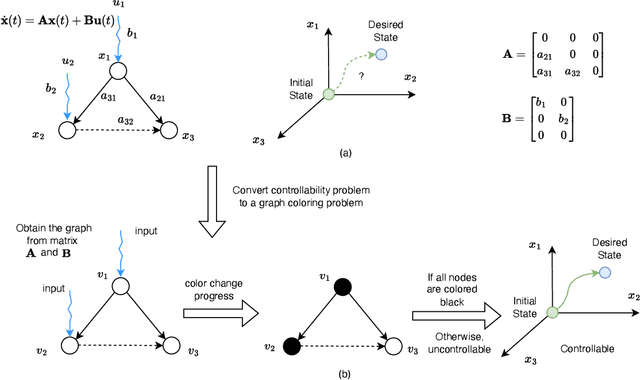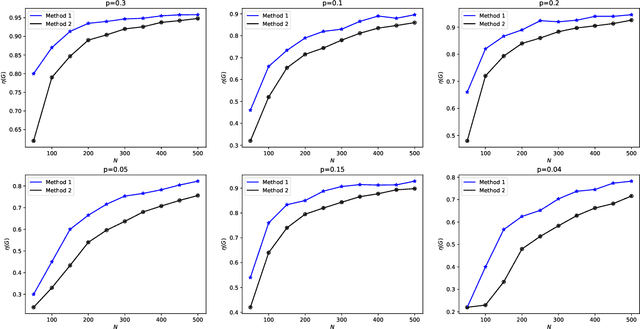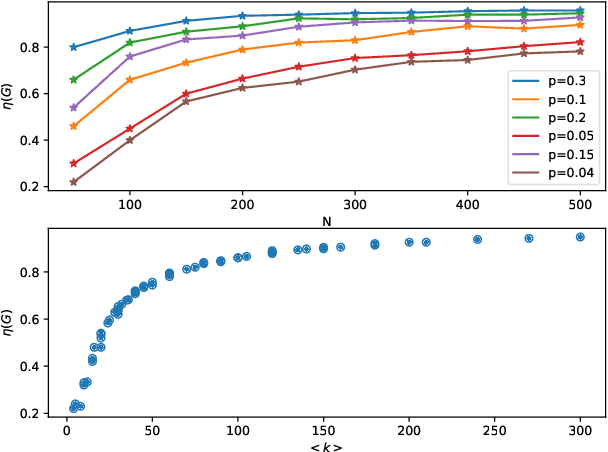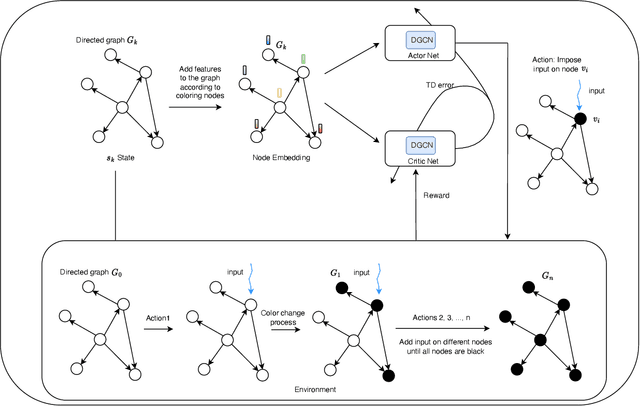Bailu Jin
Minimize Control Inputs for Strong Structural Controllability Using Reinforcement Learning with Graph Neural Network
Feb 26, 2024



Abstract:Strong structural controllability (SSC) guarantees networked system with linear-invariant dynamics controllable for all numerical realizations of parameters. Current research has established algebraic and graph-theoretic conditions of SSC for zero/nonzero or zero/nonzero/arbitrary structure. One relevant practical problem is how to fully control the system with the minimal number of input signals and identify which nodes must be imposed signals. Previous work shows that this optimization problem is NP-hard and it is difficult to find the solution. To solve this problem, we formulate the graph coloring process as a Markov decision process (MDP) according to the graph-theoretical condition of SSC for both zero/nonzero and zero/nonzero/arbitrary structure. We use Actor-critic method with Directed graph neural network which represents the color information of graph to optimize MDP. Our method is validated in a social influence network with real data and different complex network models. We find that the number of input nodes is determined by the average degree of the network and the input nodes tend to select nodes with low in-degree and avoid high-degree nodes.
Revealing the Excitation Causality between Climate and Political Violence via a Neural Forward-Intensity Poisson Process
Mar 09, 2022



Abstract:The causal mechanism between climate and political violence is fraught with complex mechanisms. Current quantitative causal models rely on one or more assumptions: (1) the climate drivers persistently generate conflict, (2) the causal mechanisms have a linear relationship with the conflict generation parameter, and/or (3) there is sufficient data to inform the prior distribution. Yet, we know conflict drivers often excite a social transformation process which leads to violence (e.g., drought forces agricultural producers to join urban militia), but further climate effects do not necessarily contribute to further violence. Therefore, not only is this bifurcation relationship highly non-linear, there is also often a lack of data to support prior assumptions for high resolution modeling. Here, we aim to overcome the aforementioned causal modeling challenges by proposing a neural forward-intensity Poisson process (NFIPP) model. The NFIPP is designed to capture the potential non-linear causal mechanism in climate induced political violence, whilst being robust to sparse and timing-uncertain data. Our results span 20 recent years and reveal an excitation-based causal link between extreme climate events and political violence across diverse countries. Our climate-induced conflict model results are cross-validated against qualitative climate vulnerability indices. Furthermore, we label historical events that either improve or reduce our predictability gain, demonstrating the importance of domain expertise in informing interpretation.
 Add to Chrome
Add to Chrome Add to Firefox
Add to Firefox Add to Edge
Add to Edge